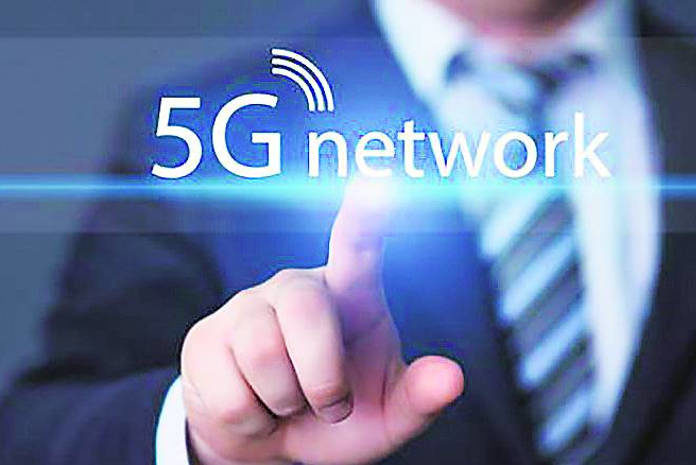(By Richa Mishra)
Cloud delivers immense capacity and scalability for data to be stored and accessed anywhere anytime, enabling organizations to add or remove components to their infrastructure as required. Technologies such as AI or Data Analytics enables us to translate volumes of real-time data into useful insights, while IoT brings technology into every dimension of human progress. Advanced network connectivity powered by 5G in combination with the tectonic shifts towards Cloud, AI & IoT has triggered a wave of innovation that drives the development of new services and products for digital transformation and generates new business outcomes.
One of the key responsibilities for intelligent networks is to retrieve data from various sources to provide real-time decisions and automated operations—at speed and scale. Meeting the requirements of building and maintaining the networking capabilities is of antecedence, where network function virtualization and software-defined networking are being used to build secure and controllable networks with the capability to utilizing the computing power. Similarly, 5G acts as a catalyst bringing together all the network capabilities and superpower technologies needed to control the information flow.
5G is beyond just an upgrade for faster data networks. From the outset, 5G was designed for intelligent connectivity of everything at large scale. AI, IoT, Cloud, Data Analytics – each of these superpower amalgamated with 5G leads to game changing technology innovation.
Industry 4.0 or future of factories
Low latency, high-bandwidth, and reliable connectivity support the increase of data flows. Connected devices with IoT sensors give us real-time information about device conditions, machines, tools, and equipment performance ranging from manufacturing cycle time to capacity utilization data, vibration to noise data. Mixing analytics and AI/ML algorithms into this data will help to predict equipment failure, repairing, reduction of downtime, and much more.
Redefining seamless Retail Experiences
5G technology is creating a demand for a new strategy in digital transformation and brings value, speed, reliability, assemble data, and ultimately help build a long-lasting relationship with customers. Retail companies are bringing in technologies such as Augmented reality (AR), Virtual reality (VR), and Mixed reality (MR) for prospective buyers to gain a 360 online experience and seek real-time SME opinion. Integrating advanced analytics with AI and IoT provides real-time insights and recommendations to improve consumer labeling, provide personalized user experience, and appropriate product recommendations to customers.
Next Gen connectivity Improves Care Sector
5G is now transforming the healthcare value chain and its delivery by increasing speed and capacity, while minimizing latency. By leveraging fifth generation features to enhance the experience of downloading and sharing large medical files such MRIs, X-rays, CAT scans or other machine images of patients and facilitating telehealth initiatives especially in rural areas. The digital pathological analysis is a first world example of using 5G technology for on-site medical problems by KT corporation.
Through 5G networks, healthcare systems can enhance the quality of care, improve patient experience at a reduced cost.
Modernizing digital footprint for energy & utilities
5G, with its specification of low latency and large bandwidth, can boost grid modernization. Smart grid meters, integration sensors in microgrid and distributed generation gives up-to-the-minute data with respect to the demand for oil, gas, water, and electricity. IoT devices also track the changes in temperature, moisture, and vibrations, making it viable in the prevention of equipment failures and increase human safety. In the digital era, energy sector would also require exceptional network connectivity for efficient transmission, distribution, and usage of energy.
Re-imagining the banking sector
Advanced network connectivity will allow the capability to fulfill financial services at high speed. Tech superpowers coupled with 5G have the potential to accelerate this transition and revamp banking into an omnipresent and instantaneous process. Cloud connectivity along with usage of 5G technology will benefit in sharing data with financial services. This data sharing can enable cloud-based services to use more computing power, evaluating these new biometric data types with even higher degrees of accuracy.
For the 5G revolution to be truly ubiquitous a vital transformation ought to happen at the core of the network and IT infrastructure. With 5G being natively software-driven the telecom service providers must implement malleable architecture to support and develop a broad variety of network and analytics-related solutions for enterprise users. The highlight of these solutions would be consumer-centricity and integration, leading to attracting application developers and other service providers. Collaboration in the form of experimentation platforms, lab, and pilot projects is key to design and develop scalable solutions and models meeting customer requirements in each industry and vertical, resulting in wins for all parties and transforming 5G investments into new revenue streams.
(The author is the Business Consultant, Technology & Advisory Consulting, Brillio)















thank you for the article post.